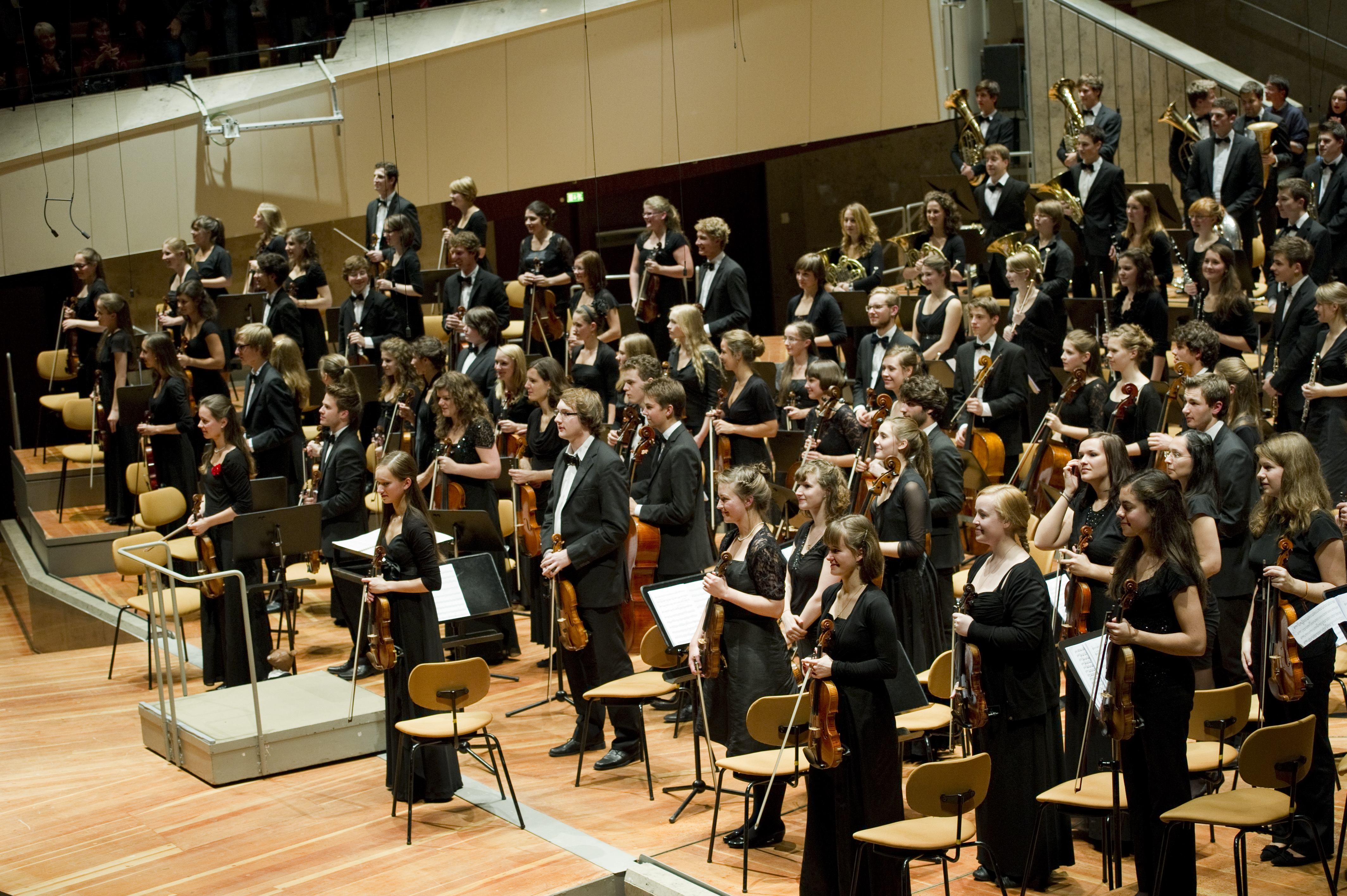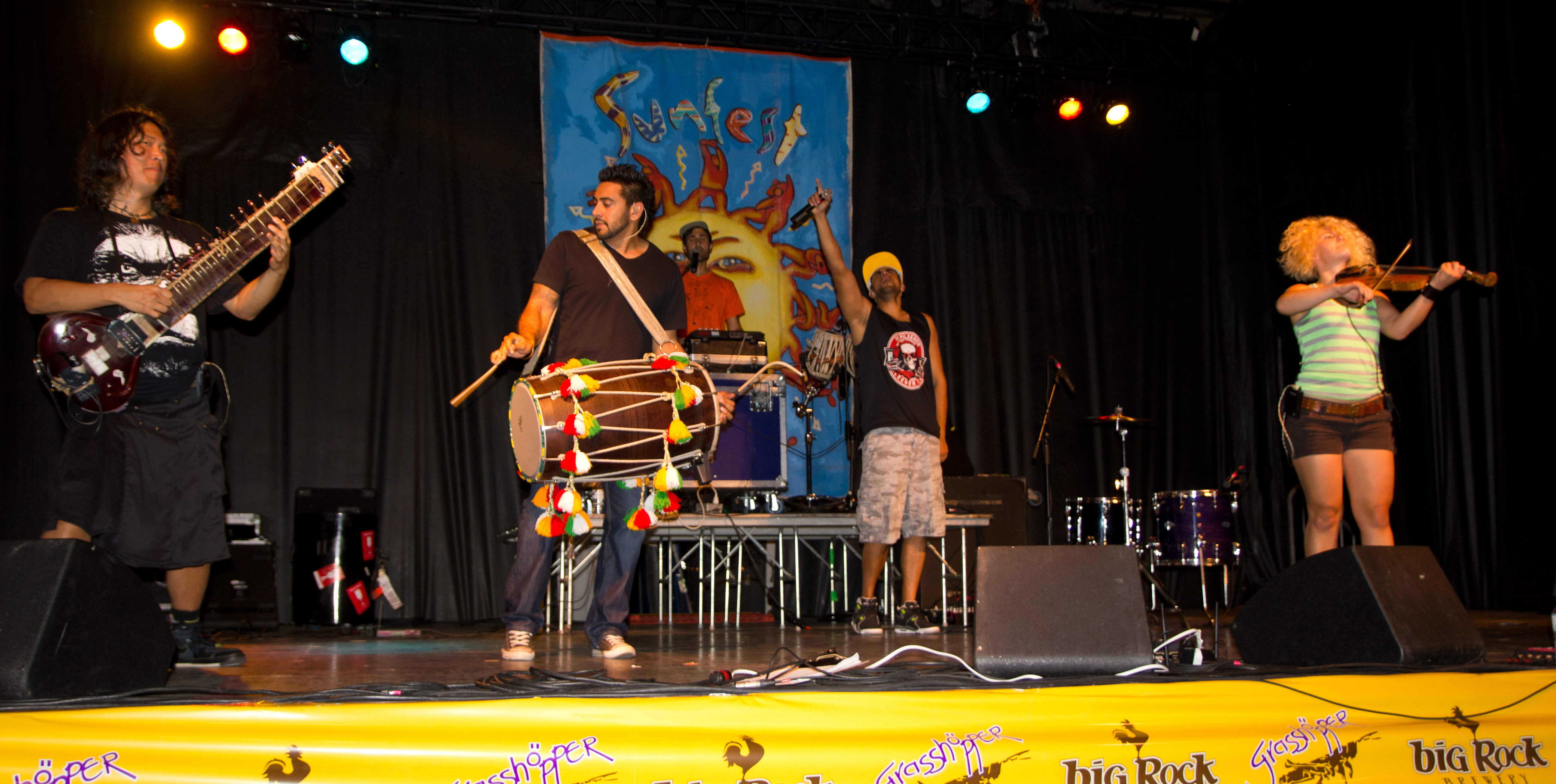|
The International Association Of Music Information Centres
The International Association of Music Information Centres (IAMIC) is a worldwide network of organisations that document and promote contemporary music. History In 1958, a number of representatives of national music information centres formed a group under the UN's International Music Council. The members of this group became a branch of the International Association of Music Libraries (IAML) in 1962. In 1986 the International Association of Music Information Centres (IAMIC) was founded, with its own board of directors. In 1991, IAMIC became fully independent and broke away from the IAML. Description and functions The IAMIC is based in Belgium. Each member music information centre promotes and documents the music of its own country of region over a variety of musical genres including contemporary classical music, world music, jazz, and popular music. Its member organisations manage extensive resources (large libraries of sheet music, recordings, biographical and research materia ... [...More Info...] [...Related Items...] OR: [Wikipedia] [Google] [Baidu] [Amazon] |
Contemporary Music
Contemporary music is whatever music is produced at the current time. Specifically, it could refer to: Genres or audiences * Adult contemporary music * British contemporary R&B * Christian adult contemporary * Christian contemporary hit radio * Contemporary a cappella * Contemporary blues * Contemporary Catholic liturgical music * Contemporary Christian music * Contemporary classical music * Contemporary commercial music * Contemporary folk music * Contemporary hit radio * Contemporary improvisation * Contemporary Jewish religious music * Contemporary laïkó * Contemporary R&B * Contemporary soul * Contemporary worship music * New adult contemporary * Rhythmic adult contemporary * Rhythmic contemporary * Urban adult contemporary * Urban contemporary gospel * Urban contemporary music Regions * Contemporary music of France * Contemporary music of Indonesia * Contemporary music of Madagascar * Malaysian contemporary music * Contemporary underground music in Syria Institutions * Acad ... [...More Info...] [...Related Items...] OR: [Wikipedia] [Google] [Baidu] [Amazon] |
International Music Council
The International Music Council (IMC) was created in 1949 as UNESCO's advisory body on matters of music. The original request of the foundation of the IMC was under the Director of the UNESCO. It is based at UNESCO's headquarters in Paris, France, where it functions as an independent international non-governmental organization. Its primary aim is to facilitate the development and promotion of international music-making. The IMC currently consists of some 120 members, divided into four categories (National Music Councils, International Music Organisations, Regional Music Organisations, National and specialized organisations in the field of arts and culture). It is represented by regional councils in Europe, Africa, and the Americas. Their task is to develop and support programmes specifically tailored to the needs of the IMC members and partners in their region. History Foundation ThInternational Music Councilwas founded by a musicologist Charles Seeger, the main purpose of t ... [...More Info...] [...Related Items...] OR: [Wikipedia] [Google] [Baidu] [Amazon] |
International Association Of Music Libraries
The International Association of Music Libraries, Archives and Documentation Centres (IAML)Also known as ''Association Internationale des Bibliothèques, Archives et Centres de Documentation Musicaux'' (AIBM) and ''Internationale Vereinigung der Musikbibliotheken, Musikarchive und Musikdokumentationszentren'' (IVMB) is an organisation of libraries with music departments, music conservatory libraries, radio and orchestra archives, university institutes, music documentation centers, music publishers, and music dealers that fosters international cooperation and promotes music bibliography and music library science. It was founded in Paris in 1951 and its three official languages are English, German, and French. History IAML was founded after World War II to "promote international cooperation and standardization in such matters as cataloging, standards of service, personnel training and the exchange of materials between libraries."Anders Lönn, "International Association of Music Libr ... [...More Info...] [...Related Items...] OR: [Wikipedia] [Google] [Baidu] [Amazon] |
Classical Music
Classical music generally refers to the art music of the Western world, considered to be #Relationship to other music traditions, distinct from Western folk music or popular music traditions. It is sometimes distinguished as Western classical music, as the term "classical music" can also be applied to List of classical and art music traditions, non-Western art musics. Classical music is often characterized by formality and complexity in its musical form and Harmony, harmonic organization, particularly with the use of polyphony. Since at least the ninth century, it has been primarily a written tradition, spawning a sophisticated music notation, notational system, as well as accompanying literature in music analysis, analytical, music criticism, critical, Music history, historiographical, musicology, musicological and Philosophy of music, philosophical practices. A foundational component of Western culture, classical music is frequently seen from the perspective of individual or com ... [...More Info...] [...Related Items...] OR: [Wikipedia] [Google] [Baidu] [Amazon] |
World Music
"World music" is an English phrase for styles of music from non-English speaking countries, including quasi-traditional, Cross-cultural communication, intercultural, and traditional music. World music's broad nature and elasticity as a musical category pose obstacles to a universal definition, but its ethic of interest in the culturally exotic is encapsulated in ''Roots'' magazine's description of the genre as "local music from out there".Chris Nickson. ''The NPR Curious Listener's Guide to World Music''. Grand Central Press, 2004. pp. 1-2. Music that does not follow "North American or British Pop music, pop and Folk music, folk traditions" was given the term "world music" by music industries in Europe and North America. The term was popularized in the 1980s as a marketing category for non-Western traditional music. It has grown to include subgenres such as ethnic fusion (Clannad, Ry Cooder, Enya, etc.) and worldbeat. Lexicology The term "world music" has been credited to et ... [...More Info...] [...Related Items...] OR: [Wikipedia] [Google] [Baidu] [Amazon] |
Jazz
Jazz is a music genre that originated in the African-American communities of New Orleans, Louisiana, in the late 19th and early 20th centuries. Its roots are in blues, ragtime, European harmony, African rhythmic rituals, spirituals, hymns, marches, vaudeville song, and dance music. Since the 1920s Jazz Age, it has been recognized as a major form of musical expression in traditional and popular music. Jazz is characterized by swing and blue notes, complex chords, call and response vocals, polyrhythms and improvisation. As jazz spread around the world, it drew on national, regional, and local musical cultures, which gave rise to different styles. New Orleans jazz began in the early 1910s, combining earlier brass band marches, French quadrilles, biguine, ragtime and blues with collective polyphonic improvisation. However, jazz did not begin as a single musical tradition in New Orleans or elsewhere. In the 1930s, arranged dance-oriented swing big bands, ... [...More Info...] [...Related Items...] OR: [Wikipedia] [Google] [Baidu] [Amazon] |
Popular Music
Popular music is music with wide appeal that is typically distributed to large audiences through the music industry. These forms and styles can be enjoyed and performed by people with little or no musical training.Popular Music. (2015). ''Funk & Wagnalls New World Encyclopedia'' As a kind of popular art, it stands in contrast to art music. Art music was historically disseminated through the performances of written music, although since the beginning of the recording industry, it is also disseminated through sound recording, recordings. Traditional music forms such as early blues songs or hymns were passed along orally, or to smaller, local audiences. The original application of the term is to music of the 1880s Tin Pan Alley period in the United States. Although popular music sometimes is known as "pop music", the two terms are not interchangeable. Popular music is a generic term for a wide variety of genres of music that appeal to the tastes of a large segment of the populati ... [...More Info...] [...Related Items...] OR: [Wikipedia] [Google] [Baidu] [Amazon] |
Sheet Music
Sheet music is a handwritten or printed form of musical notation that uses musical symbols to indicate the pitches, rhythms, or chords of a song or instrumental musical piece. Like its analogs – printed Book, books or Pamphlet, pamphlets in English, Arabic, or other languages – the medium of sheet music typically is paper (or, in earlier centuries, papyrus or parchment). However, access to musical notation since the 1980s has included the presentation of musical notation on computer screens and the development of scorewriter Computer program, computer programs that can notate a song or piece electronically, and, in some cases, "play back" the notated music using a synthesizer or virtual instrumentation, virtual instruments. The use of the term "sheet" is intended to differentiate written or printed forms of music from sound recordings (on vinyl record, compact cassette, cassette, Compact disc, CD), radio or Television broadcasting, TV broadcasts or recorded live perfor ... [...More Info...] [...Related Items...] OR: [Wikipedia] [Google] [Baidu] [Amazon] |
Festivals
A festival is an event celebrated by a community and centering on some characteristic aspect or aspects of that community and its religion or cultures. It is often marked as a local or national holiday, Melā, mela, or Muslim holidays, eid. A festival constitutes typical cases of glocalization, as well as the high culture-low culture interrelationship. Next to religion and folklore, a significant origin is agriculture, agricultural. Food is such a vital resource that many festivals are associated with harvest time. Religious commemoration and thanksgiving for good harvests are blended in events that take place in autumn, such as Halloween in the northern hemisphere and Easter in the southern. Festivals often serve to fulfill specific communal purposes, especially in regard to commemoration or thanking to the gods, goddesses or saints: they are called patronal festivals. They may also provide entertainment, which was particularly important to local communities before the adven ... [...More Info...] [...Related Items...] OR: [Wikipedia] [Google] [Baidu] [Amazon] |
Concerts
A concert, often known informally as a gig or show, is a live performance of music in front of an audience. The performance may be carried by a single musician, in which case it is sometimes called a recital, or by a musical ensemble such as an orchestra, choir, or band. Concerts are held in a wide variety of settings and sizes, spanning from venues such as private houses and small nightclubs to mid-sized concert halls and finally to large arenas and stadiums, as well as outdoor venues such as amphitheatres and parks. Indoor concerts held in the largest venues are sometimes called arena concerts or amphitheatre concerts. Regardless of the venue, musicians usually perform on a stage (if not an actual stage, then an area of the floor designated as such). Concerts often require live event support with professional audio equipment. Before recorded music, concerts provided the main opportunity to hear musicians play. For large concerts or concert tours, the challenging logistics ... [...More Info...] [...Related Items...] OR: [Wikipedia] [Google] [Baidu] [Amazon] |
International Music Organizations
International is an adjective (also used as a noun) meaning "between nations". International may also refer to: Music Albums * ''International'' (Kevin Michael album), 2011 * ''International'' (New Order album), 2002 * ''International'' (The Three Degrees album), 1975 *''International'', 2018 album by L'Algérino Songs * The Internationale, the left-wing anthem * "International" (Chase & Status song), 2014 * "International", by Adventures in Stereo from ''Monomania'', 2000 * "International", by Brass Construction from ''Renegades'', 1984 * "International", by Thomas Leer from ''The Scale of Ten'', 1985 * "International", by Kevin Michael from ''International'' (Kevin Michael album), 2011 * "International", by McGuinness Flint from ''McGuinness Flint'', 1970 * "International", by Orchestral Manoeuvres in the Dark from '' Dazzle Ships'', 1983 * "International (Serious)", by Estelle from '' All of Me'', 2012 Politics * Internationalism (politics) * Political international, any ... [...More Info...] [...Related Items...] OR: [Wikipedia] [Google] [Baidu] [Amazon] |





